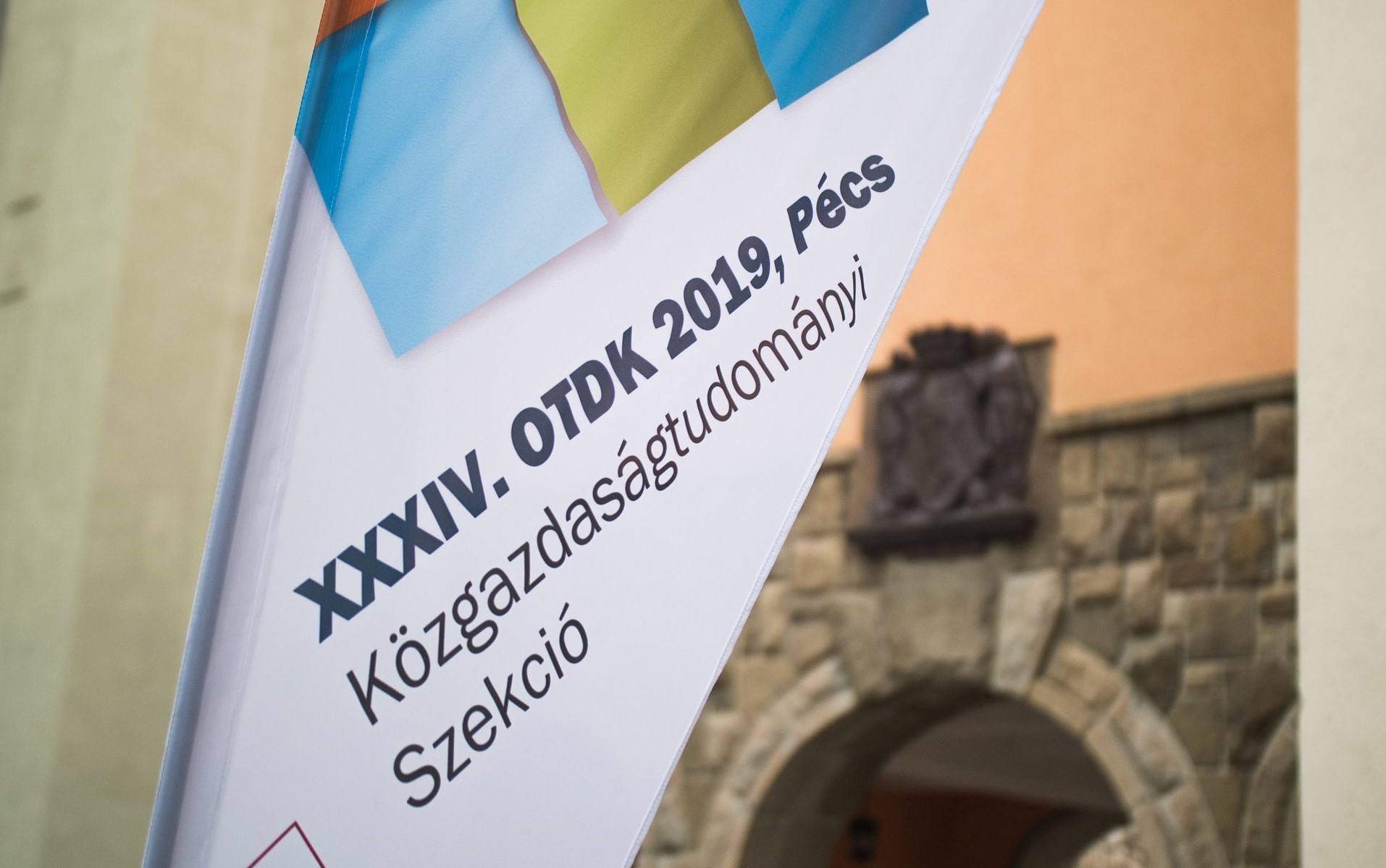Future economists compete in Pécs!
The Faculty of Economics of the University of Pécs hosted the XXXIV. National Scientific Students' Conference 11-13 April 2019.
After a long time, the young economists of the country were able to compare their knowledge again in Pécs, since the last time held in 1995. The students presented their research and results in 44 sections at the event. The number of scientific papers exceeded 400.
Almost every faculty of economics in Hungary and beyond the border (Felvidék, Transylvania, Transcarpathia) received guests.
Peter Szendrő, founder of the OTDK movement, emphasized: “This kind of event is unique in the world. 64 years have elapsed since its foundations were invented. Currently, around 7,000 people have been nominated nationwide for the National Student Circle Conference. And the OTDK has long-term management, and economics is one of its biggest sections. ”
In addition to scholarly work, students have also participated in many colourful programs. On Thursday, they finished the day with a TEDx event featuring a presentation by philosopher Anna Réz, founder of the Glass Ceiling Platform, and Anita Kiss (Sberbank) on Artificial Intelligence, Tímea Hirsch’s (ITSH) presentation about the psychology of tidying, in addition József Váradi’s (Wizz Air) presentation about the road to success. And on Friday night at the Soulwave concert, they enjoyed the moments of liberated joy after a well-done job.
At this year's OTDK for the first time, the Tamás Roska Prize was presented, and then got obtained by Sombor Berezvai, who also gave a presentation on the importance of innovation for small businesses in the food industry. Tamás Roska (1940 - 2014) was a Hungarian electrical engineer, Széchenyi-prize winner and Bolyai-prize winner, informatics professor, full member of the Hungarian Academy of Sciences. He is associated with the development of the CNN chip and the launch of neural networks research in Hungary.
At the event, the presence of high school students was a novelty, who participated in programs such as the "Research Advisors Roundtable", where they had an interactive chat with former OTDK contestants and winners.
As the Secretary of State for Education, József Bódis stated at the opening: “OTDK is a tough field! Creativity, critical thinking, and complex problem-solving are skills that are important in the future and are essential for jobs that do not exist at the moment, and these all come to the fore. ”
At the award ceremony on Saturday, nearly 4.5 million HUF, numerous special awards, corporate and sponsorship gifts were allocated to the winners.
The following students are among the winners from the Faculty of Business and Economics of the University of Pécs:
First places and topics:
- Máté Szabó: Sylviculture of lordship along the Drava in the era of dualism
- Krisztián Bosnyák: Empirical Investigation of Principal Structure Decisions on Stock Exchange Corporate Samples
Second bests and topics:
- Kristóf Győrffy: Organizational talent management in Hungarian colleges of economics and business
- Krisztian Attila Istenes: What is the way forward controlling?
- Gábor Szabó: Changes in the use of travel agency services examining the consumption preferences of Generation Y and Z
Third places and topics:
- Károly Máté Krőhnung-Székely: Internet-of-things tool-based decision-support systems for fuel specification
- Henrietta Ignácz: Where next? Investigating Factors Affecting Transition from Bachelor to Masters Degree in the Graduate Career Tracking System
- Ákos Gáspár: Investigation and comparison of career aspirations of Hungarian and Italian economists
- András Geisz: The performance gap between short and long-term capital allocation horizons in the US capital markets after the 2008 global financial crisis
Special Award winners:
- Máté Szabó: Sylviculture of lordship along the Drava in the era of dualism
- Dóra Kásler: The evolution of the spa life of Southern Lake Balaton during the period of socialism
- Renata Fritz: I will endure if I don't get social media for days: consumer response to a shortage
- Zsófia Biró: Financial feasibility of MOL's 2030 strategy and impact on shareholder value
Zoltán Schepp, dean of the faculty, congratulated to the winners in particular, but also to the other ones, and then emphasized:
’Thanks to the strong financial support of the Ministry of Human Resources, the attractiveness of the city of Pécs, the preparatory work of the faculty rounds over the past two years and the dedication of the colleagues in the organization, we were able to stop the decreasing number of participants, moreover, a powerful increase was shown among those who registered. We expected this few days in April to be a real ’science festival’ where, in addition to competing with fresh and productive ideas and research results, there is also an opportunity for participants from different institutions to get to know each other, gather experiences and by way of that to gain lifelong memories, certainly came true! ’

